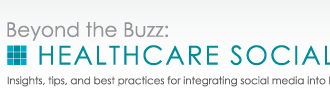In healthcare settings, the management of death cases entails navigating a complex landscape of legal and ethical considerations. From honoring patient autonomy to ensuring compliance with regulatory standards, healthcare professionals are tasked with upholding the highest standards of care while respecting the rights and dignity of patients and their families. This article delves into the multifaceted realm of legal and ethical considerations surrounding death cases in healthcare settings, exploring the intricate balance between legal obligations, ethical principles, compassionate care, and seek a wrongful death cases lawyer in Atlanta. By examining key issues such as informed consent, documentation requirements, and cultural sensitivity, we aim to shed light on the challenges faced by healthcare providers and offer insights into navigating these complexities with integrity and compassion.
Navigating Legal Obligations
Navigating legal obligations in managing death cases within healthcare settings requires a comprehensive understanding of the intricate legal framework governing end-of-life care. Healthcare providers must adhere to a myriad of regulations and statutes to ensure compliance and mitigate legal risks. This includes accurate documentation of medical decisions, adherence to protocols for informed consent, and compliance with state and federal laws regarding patient rights and confidentiality.
Additionally, healthcare institutions must navigate legal obligations surrounding autopsy procedures, organ donation consent, and reporting requirements for unexpected or suspicious deaths. By prioritizing transparency, communication, and adherence to legal standards, healthcare professionals can uphold patient rights and ensure accountability while providing compassionate end-of-life care.
Ethical Dilemmas in End-of-Life Care
Ethical dilemmas in end-of-life care pose complex challenges for healthcare professionals, balancing patient autonomy with beneficence and non-maleficence. Respect for patient autonomy may conflict with obligations to provide palliative care or withhold life-sustaining treatments. Effective communication and shared decision-making are vital in navigating these ethical quandaries while ensuring patient-centered care and preserving dignity.
Documentation and Reporting Requirements
Documentation and reporting requirements in managing death cases demand meticulous attention to detail and adherence to regulatory standards. Accurate documentation of medical decisions, patient consent, and end-of-life care protocols is essential for legal compliance and quality assurance. Timely and thorough reporting ensures transparency, accountability, and continuity of care within healthcare settings.
In addition to meeting legal mandates, robust documentation and reporting practices enhance communication and collaboration among healthcare teams. Comprehensive documentation facilitates continuity of care by providing crucial insights into patient history, treatment plans, and end-of-life preferences. Moreover, thorough reporting ensures accurate record-keeping, aiding in quality improvement initiatives and risk management efforts within healthcare organizations.
Informed Consent and Advance Directives
These are integral components of ethical end-of-life care, empowering patients to make informed decisions about their treatment preferences. Healthcare providers must ensure patients fully understand the risks, benefits, and alternatives to proposed interventions, respecting their right to autonomous decision-making. Advance directives allow individuals to document their healthcare wishes in advance, guiding care decisions in the event they become unable to communicate their preferences. By honoring these documents, healthcare professionals uphold patient autonomy and provide care that aligns with their values and wishes.
Medical Malpractice Liability
It looms large in the realm of end-of-life care, necessitating meticulous adherence to professional standards and ethical guidelines. Healthcare providers must deliver care that meets the expected standard of practice, ensuring patient safety and well-being.
Failure to uphold this standard can result in legal ramifications, including lawsuits alleging negligence or wrongful death. Robust risk management strategies, such as regular training, quality assurance protocols, and open communication with patients and families, are essential for mitigating malpractice risks and promoting patient safety.
Cultural Sensitivity and Religious Considerations
These play a pivotal role in end-of-life care, as beliefs and practices vary widely among diverse populations. Healthcare providers must respect and accommodate cultural and religious preferences surrounding death and dying.
This includes understanding rituals, attitudes towards treatment, and preferences for end-of-life care. By fostering open dialogue and tailoring care plans to align with cultural and religious values, healthcare professionals can ensure that patients receive care that is respectful, compassionate, and culturally competent.
Additionally, healthcare organizations can offer training and resources to support staff in providing culturally sensitive care and navigating complex cultural and religious landscapes.
Family Engagement and Communication
These are crucial aspects of end-of-life care, fostering collaboration, trust, and shared decision-making between healthcare providers and patients’ families. Open and transparent communication helps families understand the patient’s condition, treatment options, and prognosis, empowering them to make informed decisions and participate in care planning. Regular updates, empathetic listening, and providing emotional support are essential for building rapport and alleviating concerns during challenging times. By involving families in the care process and prioritizing effective communication, healthcare providers can enhance the overall experience of patients and their loved ones, promoting dignity, comfort, and peace of mind.
Furthermore, family engagement and communication extend beyond the immediate care setting, encompassing discussions about end-of-life preferences, advance care planning, and bereavement support. Healthcare providers play a crucial role in facilitating these conversations, offering guidance, resources, and emotional support to families as they navigate difficult decisions and transitions. By fostering a collaborative partnership with families throughout the continuum of care, healthcare professionals can promote shared decision-making, honor patients’ wishes, and provide holistic support to both patients and their loved ones.
Final Thoughts
In conclusion, effective management of death cases in healthcare settings requires a delicate balance of legal compliance, ethical considerations, and compassionate care. By navigating legal obligations, addressing ethical dilemmas, and fostering open communication with patients and their families, healthcare providers can uphold the highest standards of care while respecting patient autonomy and dignity. Through proactive risk management strategies, cultural competence, and family engagement, healthcare organizations can promote patient safety, mitigate legal risks, and ensure that end-of-life care is personalized, respectful, and compassionate. Together, let us continue to prioritize the well-being and dignity of patients and their families as we navigate the complexities of death cases in healthcare settings.








